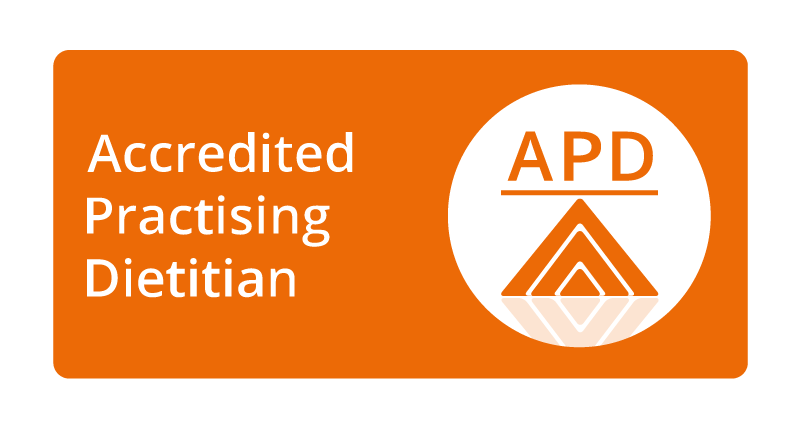PCOS an endocrine (hormonal) disorder that can have significant metabolic effects if untreated, leading to Metabolic Syndrome and diabetes. PCOS is characterised by polycystic ovaries, high levels of male hormones and irregular or absent menstrual periods with symptoms generally presenting during puberty or in the early 20’s. However it is possible for many women to go undiagnosed for many years. Insulin resistance is a common cause of PCOS in most women. This is also what puts women with PCOS at an increased risk of Type 2 diabetes. When we eat carbohydrates all these foods are broken down to glucose. Insulin is then released by our pancreas in response to glucose entering our blood stream and Insulin acts to allow glucose to enter key cells (like muscle cells) that need glucose for energy. Insulin resistance effectively means that these cells are not responding to insulin in the way they should. As a result, the body responds by producing more and more insulin in order to overcome the “resistance” to the insulin – eventually wearing out the pancreas. In PCOS, the high levels of insulin has the effect of acting on the ovaries and adrenal glands to cause them to make excess male hormones (i.e testosterone). As a consequence, the hormonal balance is disrupted, preventing ovulation and causing menstrual problems.
Symptoms of PCOS
Every woman is different, but symptoms of PCOS can include:
- Acne
- Hirsutism (excess hair growth on the stomach, chest, face)
- Alopecia (scalp hair loss)
- Irregular or absent menstrual periods
- Infertility or reduced fertility
- Obesity or Abdominal Obesity
- Acanthosis Nigricans (dark velvety skin pigmentation)
- Increased risk of miscarriage
- Anxiety and/or Depression
Diagnosing PCOS
If you think you have PCOS and have any of the above symptoms, it is really important you go to see your doctor so all your symptoms can be considered together. Many girls and women often consider that their symptoms of weight gain, irregular periods, acne, difficulty losing weight, hirsutism or infertility are all unrelated and seek treatment or interventions from different health providers for each symptoms one at a time. A diagnosis is usually made by considering:
- your symptoms
- an ultrasound of your ovaries (to see if there are cysts or ovarian enlargement – though isn’t recommended in adolescents)
- blood test results – including male hormone levels (testosterone, SHBG or sex hormone binding globulin, and the Free androgen index or FAI), as well as tests to rule out other hormonal issues
Currently, for a diagnosis of PCOS to be made you must have at least 2 of the following 3 factors:
- Irregular or absent periods
- Clinical or biochemical signs of elevated male hormones (i.e evidence on a blood test of elevated testosterone, or signs such as acne or excess hair)
- Polycystic ovaries seen on ultrasound
It is also important that other conditions that cause similar symptoms to PCOS are ruled out. These include Hypothalamic Amenorrhea, androgen secreting tumours and Cushing’s syndrome. Due to the increased risk of developing Type 2 diabetes, many Doctors may also organise for you to have an Oral Glucose Tolerance Test to see if you have high Insulin levels. An OGTT is recommended every 2 years as a way of screening for diabetes in women with PCOS, or yearly if there are other risk factors for diabetes
“Accepting your body – accepting it just as it is – this is one of the greatest PEACE MOVEMENTS of our time”
Golda Poretsky
How does the dietitian help?
A diagnosis of PCOS can result in so many feelings – relief, grief, fear, determination, frustration. My role as a a dietitian is to help you work through what management strategies are going to be right for you based on what symptoms you have, what your lifestyle is, and what your preferences are. There is so much information out there, and my job as an evidence-based professional, is to give you the most up-to-date research so you can make informed choices about you health care. Managing PCOS will very much depend on your symptoms, and what is important to you. Issues that you may want to consider include:
- Improving fertility
- Improving your mental and emotional well-being (e.g reducing anxiety and depression)
- Managing symptoms such as acne, excess hair an/or irregular periods
- Reducing the risk of future health problems, e.g heart disease and diabetes
Lifestyle Management
It can be a relief to know that lifestyle plays a huge role in the management of PCOS. Diet, exercise, managing stress and emotional well-being, getting enough rest, and most of all, being kind to yourself are all important if not vital strategies in helping to improve the symptoms of PCOS. Reducing insulin levels through balancing carbohydrate/protein/fat intake is a key goal as this will help to reduce testosterone and in turn reduce the symptoms associated with out of balance hormones (i.e acne, menstrual dysfunction, excess hair, infertility). This may or may not involve weight loss – and personally, I don’t like to focus on weight as I believe it causes added stress that women don’t need. I prefer to focus on the principles of healthy, intuitive eating, and helping you listen to what your body needs. Addressing other factors such as exercise, sleep, smoking, alcohol consumption and chemical exposure is also is vital. Exercise helps sensitise your muscles to insulin, as well as builds more muscle so you can use more of the glucose in your blood – so it has a double impact on lowering blood glucose levels. While decreasing your exposure to toxins eases the burden on your liver – a key metabolic organ which is under stress already due to having PCOS. Because PCOS can have quite wide-ranging impacts, I can work with you to develop an individualised lifestyle and nutrition management plan that will address your symptoms, improve your health and well-being, and reduce your risk of developing long term health issues.
To make an appointment with me, call Psych Solutions in Orange on 6360 3551, or in Dubbo on 6882 7551. Or, if you’d like to talk wth me before making an appointment, feel free to call me on 0438 633 038 – if I am free I will happily talk with you, or if not, please leave a message and I will return your call.
HELPFUL RESOURCES:
JEAN HAILES: https://www.jeanhailes.org.au
PCOS NUTRITION: https://www.pcosnutrition.com
HORMONES AUSTRALIA: https://www.hormones-australia.org.au/endocrine-diseases/polycystic-ovarian-syndrome-pcos/


